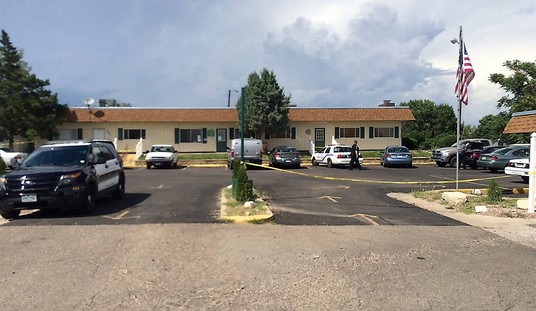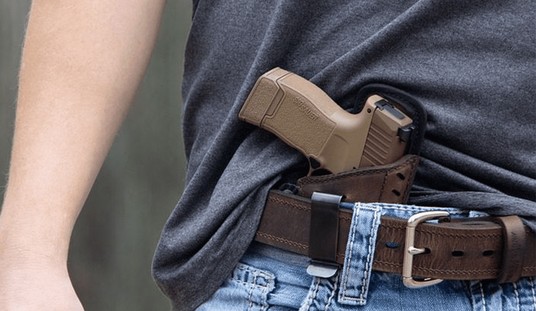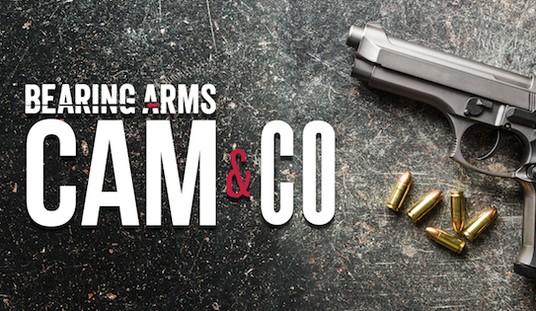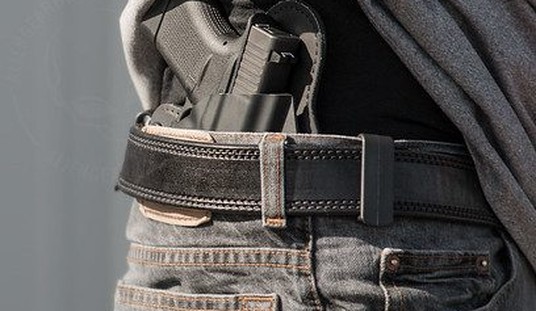
I warned WRAL investigative reporter Cullen Browder over the weekend not to run a heavily biased story on NFA Trusts. He didn’t listen, and so now I have the duty to show all the ways in which his hit piece falls apart.
Here’s the headline.
WRAL Investigates: Owning high-powered weapons possible without normal ATF oversight
This headline is what we call “highly inaccurate.” The National Firearms Act (NFA) has nothing whatsoever to do with power, but with function. Most of the items you’ll find covered under the National Firearms Act (and all of those covered in this story) are far from high-powered.
But the headline is the least that’s wrong with this story, so let’s press on.
Short-barreled rifles and suppressors, also known as silencers, are types of weapons covered under the National Firearms Act. To buy them, the process is much more thorough than purchasing most other guns. But there’s a legal way to avoid those checks and balances.
Suppressors (“also known as silencers”) are not weapons. They’re mufflers. Literally. Hiram Percy Maxim developed car mufflers and gun mufflers at the same time, using the same technology, for the same reason.
And no, you can’t “avoid checks and balances to buy them.” You still have to undergo an FBI NICS background check to purchase one, and go through an excruciating amount of paperwork.
Matt Reeves of Cary has a modified PS90 short barrel rifle, a weapon he has always wanted to own, “mostly for collector value,” he said. Because the barrel is shorter than 16 inches, it’s more strictly regulated under the NFA.
I have your first bit of bad news, Mr. Browder. Matt does indeed own a PS90, but this gun that you mis-identify as a PS90…
…is an achingly common short-barrel AR-15.
This gun below a PS90. It’s a different kind of firearm, in a different configuration, using a different kind and size of magazine, in a different caliber, but, hey, it’s black, and that’s accurate enough for WRAL.

Reeves bought the gun and the suppressor in Harnett County after the local sheriff signed off on his purchase. Now, he lives in Wake County.
“Any future applications I have as of right now will have to be through a gun trust because (Wake County Sheriff) Donnie Harrison will not sign off on my NFA application,” Reeves said.
Harrison says he will only sign NFA applications if the buyer is a collector, researcher, police officer, in the military or if the weapon is involved in corporate security.
When, precisely did Cullen Browder interview Wake County Sheriff Donnie Harrison?
I ask, because…
Yesterday, North Carolina Governor Pat McCrory signed HB 562 into law. With his signature, North Carolina became the 14th state to implement Shall-Sign/Shall-Certify legislation. The bill, which had strong bipartisan support in both chambers of the North Carolina legislature, passed the Senate 40-9 after passing the House in a 78-37 vote.
In addition to other pro-gun provisions, HB 562 guarantees that law-abiding North Carolina residents are able to purchase and own suppressors by requiring Chief Law Enforcement Officers (CLEOs) to sign suppressor applications within 15 days of receipt, unless the applicant is found to be a prohibited person. The shall-sign provision has an effective date of July 1, 2015, so anyone who has forms that were submitted to CLEOs on or after July 1, and who has not yet received a sign-off, can politely contact the relevant CLEO office to make sure they are aware of the new law. North Carolina now joins the other 13 states with similar provisions, ensuring that CLEOs do not have veto power over the public’s right to own suppressors.
“Yesterday” in the story above was August 6, 2015. Since that time, all North Carolina chief law enforcement officers (CLEOs) must sign off on suppressors and all other NFA items.
They have no legal choice to refuse the “shall-sign” provision unless they can prove that the person applying for an NFA item is prohibited, and that includes Wake County Sheriff Donnie Harrison.
I’d further note that Sheriff Harrison isn’t being strictly truthful. Prior to the new law, the good Sheriff was well known as a refusik, and previously wouldn’t sign off on suppressors even for his own deputies, forcing them to apply for NFA trusts.
But let’s get on to what Cullen has to say about NFA trusts all the same.
For those who want short barrel rifles and suppressors but can’t get a local sheriff’s authorization, a gun trust is a legal avenue that is gaining popularity. It’s similar to a will in that it allows firearms to pass between generations. It allows one person to go through the rigorous background check and gives the trustee the power to legally share the weapons with others.
A quick Internet search shows local lawyers advertising for trusts so gun owners can bypass the local sheriff. Fayetteville attorney Drew Dempster specializes in gun trusts and said he doesn’t consider it a legal loophole.
“I would call it a legal protection of individuals who want to legally own these firearms,” he said.
A gun trust is a legal arrangement that allows guns be passed down to beneficiaries without court dispute. At the same time, anyone designated by the trust can possess NFA-regulated firearms.
The head of the trust must pass a criminal background check, submit extensive paperwork, pay $200 to the Bureau of Alcohol, Tobacco, Firearms and Explosives and wait about six months for a decision. Approval opens the door for anyone else named in the trust to own the guns without the same scrutiny.
Browder all but screams, “Loophole!” and yet there very clearly aren’t any.
The head of the trust still has to run through all the legal loopholes, (as noted above), and all trustees must likewise be legally authorized to possess the NFA firearms. There are no loopholes.
An NFA trust is a convenience that allows numerous legally-qualified people to use the same NFA items and avoid some legal “gotchas,” due to poorly written federal laws and and often confused ATF regulations.
WRAL has long been know to be a hard-left news outlet with what we’ll charitably call a “veracity problem.” Cullen Browder’s misleading, poorly researched and inaccurate NFA trust hit piece is a prime example of why so few of us in the Raleigh-Durham market trust Browder or WRAL for their “news.”









Join the conversation as a VIP Member